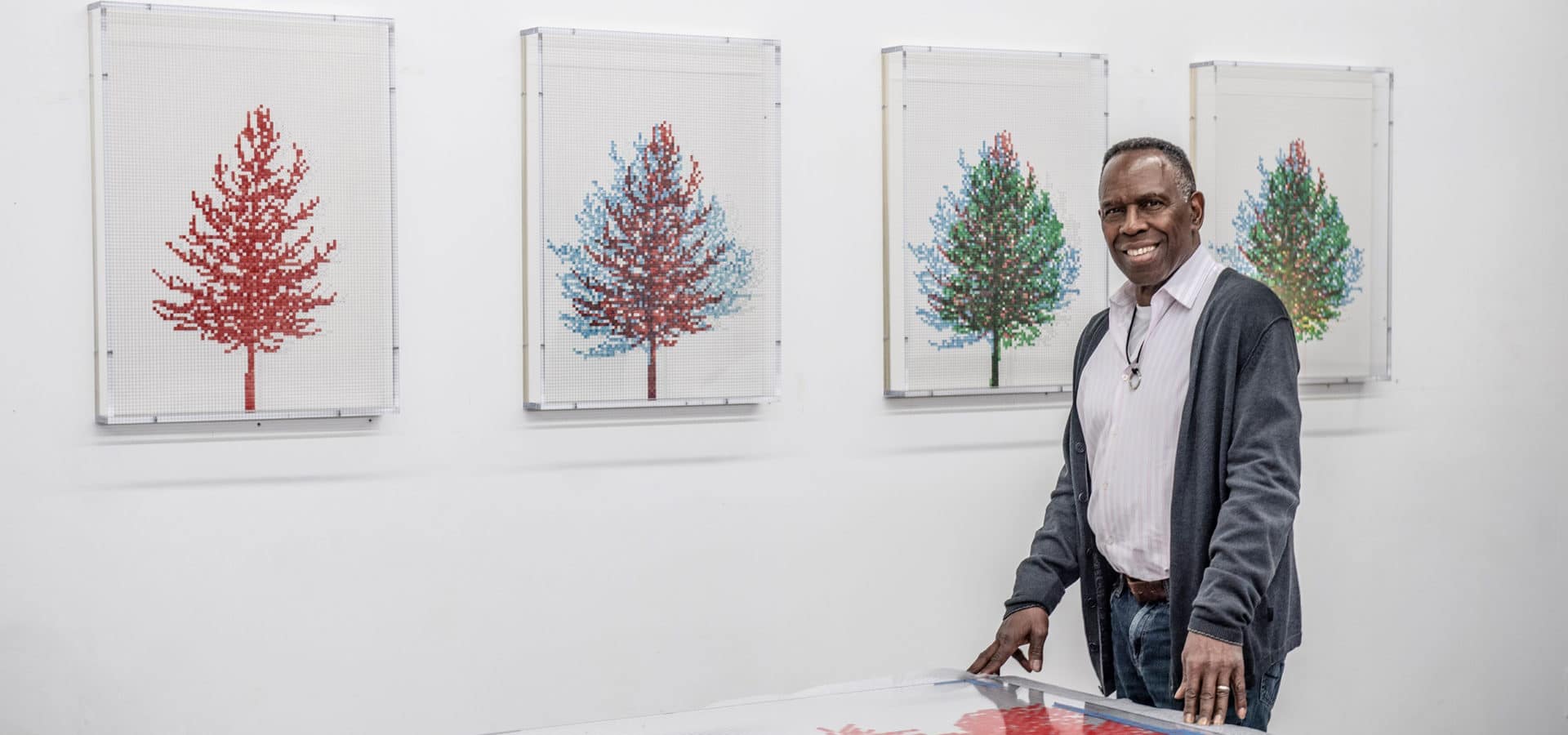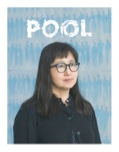While Charles Gaines’ extraordinary work as a conceptual artist has been an ever-expanding force on the art world in recent years, his long-standing efforts as an educator have also made an indelible impact. Gaines’ unwavering determination and his dedication to his students have had an outsized influence on countless artists. Now, thanks to a series of recent gifts to the Institute, including one from Gaines himself, two new initiatives build on his extraordinary legacy as an educator while also helping CalArts take steps toward its aspirational values of access, equity, and inclusion.
For Gaines, teaching has long been an outlet for bringing his own ideas about art to life—for both his students and himself—even as a young educator teaching undergraduate students at California State University, Fresno. Beyond exploring theory, philosophy, and ethics, as well as pushing the boundaries to help his students expand their minds and connect their work with something meaningful, Gaines has always tried to go even further. During his time as an educator, he made a point to mentor countless students. In particular, he has helped prepare students of color for the challenges they will inevitably face in the art world. During Gaines’ career at the Institute, which began in 1989, he has mentored such acclaimed Black artists as Mark Bradford (Art BFA 95, MFA 97), Rodney McMillian (Art MFA 02), Lauren Halsey (Art BFA 12), Edgar Arceneaux (Art MFA 01), and Henry Taylor (Art BFA 95), among many others.
“I have spent my whole teaching career at CalArts working—not alone but with others—on diversity and inclusion in order to increase the presence of the minority voice in society and to help make possible access to opportunities that have been historically denied to people of color and that most Americans take for granted,” Gaines said.
Gaines’ long-standing dedication to his students is now being uniquely recognized and supported by philanthropic efforts that are designed to help transform the School of Art into a more equitable and inclusive community of artists. Last August, CalArts announced that philanthropist Eileen Harris Norton had made a $5 million gift to the Institute to establish the Charles Gaines Faculty Chair. Additionally, proceeds from her gift will be used to facilitate further development of Black and other underrepresented faculty in the School of Art through the support of research, creative activities, and curriculum innovation. This transformative gift will enable opportunities for new voices to be heard and new work to be explored in the School of Art and beyond. But perhaps most importantly, it will hasten CalArts’ efforts to achieve its aspirations of greater equity and inclusivity.
“Both institutions of higher education and of the arts are regularly costumed as bastions of progressive thought and spaces of equity and inclusion,” said CalArts President Ravi Rajan in a statement about the gift last August. “Actual practices indicate otherwise. Eileen Harris Norton knows this, and her gift helps CalArts create structures that counter this behavior. Her confidence that we can transform into an institution that practices our aspirational values, while honoring a faculty artist who has consistently led this critique in his career, is inspirational.”
Gaines will be the first faculty member to hold the endowed position, which will be known as the Charles Gaines Faculty Chair. Preference for future appointments will be given to faculty from underrepresented groups, including those who self-identify as Black.
Building on Norton’s exceptional generosity, Gaines himself bestowed an initial gift upon the Institute this fall. It will be used to establish a fellowship that gives critical scholarship support to Black students in the MFA Art program beginning in fall 2021. Two lead gifts—from trustee Jill Kraus and CalArts alumnus David Kordansky (Art MFA 02)—were quickly added to Gaines’ contribution. Those gifts—in addition to gifts made directly by Hauser & Wirth, the gallery that represents Gaines, as well as several generous gifts made by private collectors facilitated by the gallery—have provided over $600,000 to date for what will be known as the Charles Gaines Fellowship.
Inspired by this philanthropy, the Institute is embarking on a multimillion-dollar fundraising initiative to endow the fellowship and enable it to fund support for future generations of underrepresented artists—an effort that is sorely needed in MFA Art programs across the United States. Art programs at both the undergraduate and graduate levels have historically struggled to enroll underrepresented minority students, particularly Black students, who make up only a tiny fraction of those in MFA Art programs. In recent years, this deficiency has been particularly stark at CalArts. Of the 25 students enrolled in the MFA Art program in fall 2019, not a single one identified as Black.
The Charles Gaines Fellowship, which will cover at least two-thirds of the cost of tuition for those who receive it, comes at a moment when CalArts is strengthening its commitment to inclusivity, diversity, and equity. In October, the Institute announced the IDEA (Inclusion, Diversity, Equity, and Access) initiative, a full-throated, collective effort to move toward a more inclusive community.
“At CalArts, we haven’t yet fully lived up to our aspirational values of access, equity, and inclusion,” President Rajan said in a statement announcing IDEA. “These values present for us, as for society, eternal goals—things for which we have to continually strive. Moving forward we must do this work with intent, strength, and conviction because we know that, for many artists from underrepresented and minority backgrounds, joining the CalArts community remains opaque or out of reach.”
Over his more than three decades at CalArts—and beyond—Gaines has worked tirelessly to open art and the arts community to his students. The faculty chair and the fellowship will, in part, acknowledge this important component of his towering legacy.
“Charles is an amazing artist and has been an important teacher for a generation of younger artists,” Harris Norton said. “He deserves much recognition for his talent and for what he has given to his students and the larger world. He has been an underrecognized presence and I want his influence to be known and brought to a wider audience.”







